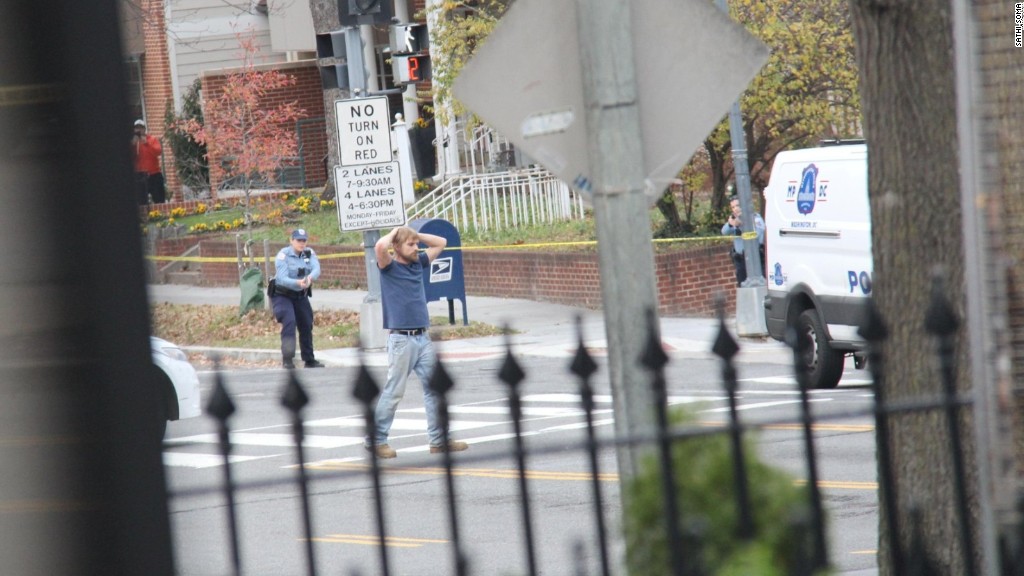
Before there was Pizzagate, there was GamerGate and revenge porn.
The GamerGate movement purported to promote ethics in gaming but was widely condemned for the online vitriol aimed at female gamers and journalists, some of which translated into real world threats. Revenge porn similarly relies on the internet to disseminate intimate photos of a person online and is often used to extort victims.
Pizzagate is an elaborate theory that top Democrats including Hillary Clinton and John Podesta run a child sex operation out of D.C. pizzeria Comet Ping Pong.
Like with GamerGate and revenge porn, the theory gained traction -- and an audience -- online. It's being shared on social platforms like 4chan, Reddit, Facebook, and Twitter, making it hard to crack down on any one person or organization.
"What we're seeing is a larger manifestation of very common tactics of abuse," Soraya Chemaly, a writer and director of the Women's Media Center Speech Project, told CNNMoney. "There's nothing new about what we're seeing."
The pizzeria owner James Alefantis has been receiving death threats since early November, at times dozens of threats per day, according to a source close to the matter. And on Sunday, a man with an assault rifle showed up at Comet Ping Pong to look into Pizzagate himself. He apparently fired at least one shot before he was apprehended.
It's not shocking for those who've been paying attention. Targets of online harassment have little recourse in the real world. GamerGate target Brianna Wu has received hundreds of death threats, previously telling CNNMoney that police just advised her to "stay off technology."
And putting a stop to the spread of misinformation can be difficult. "You can never get rid of the information once it's out there," Chemaly said, adding that "harm comes from exponential reach across multiple platforms."
Related: Comet Ping Pong not the only D.C. business enduring a nightmare
According to the source, Alefantis had repeatedly reached out to tech companies like Facebook, as well as law enforcement, about the threats before Sunday.
So, why haven't tech companies done more?
Tech platforms are protected under the Communications Decency Act, a unique U.S. legal protection that gives a broad layer of immunity to online companies from being held liable for content posted by users. There are exceptions, but the law is meant to preserve freedom of expression. Companies are supposed to act in good faith to protect users.
Related: Reddit cracking down on hundreds of toxic users
When they choose to, companies can band together to combat threats online, as they did on Monday, when Facebook (FB), Microsoft (MSFT), Twitter (TWTR) and YouTube partnered to help curb the spread of terrorist content.
But Pizzagate doesn't appear to be a priority.
Reddit cracked down on November 22, banning the r/pizzagate thread from its site. "We are very clear in our site terms of service that witch hunts and vigilantism can hurt innocent people," said a spokeswoman in a statement sent to CNNMoney.
Yelp (YELP) placed an active cleanup alert on Comet's business listing, something it does when businesses are facing "a high level of scrutiny and media attention" to ensure that reviews are valid.
Other key platforms have stayed quiet. Facebook declined to comment. Twitter, Instagram, and YouTube did not return CNNMoney's request for comment.
According to John Villasenor, a professor at UCLA and nonresident senior fellow at Brookings, it can be difficult for companies to define hate speech. "Since there's not a broader societal consensus about those boundaries, it's not feasible to expect social networking companies to come up with a universally accepted answer," he said.
Since much of the moderation is done by humans, what constitutes a threat can be subjective.
Chemaly points out that the business models of companies like Facebook mean that they benefit from clicks regardless of the content. She got Facebook to crack down on photos that perpetuated violence against women and rape in 2013 by pointing out to advertisers that their ads were next to these questionable images. The financial incentive for Facebook helped force its hand.
"You have to change the way [tech companies] compensated," she added, adding that otherwise, she suspects "we're just going to see more" instances like Pizzagate.

